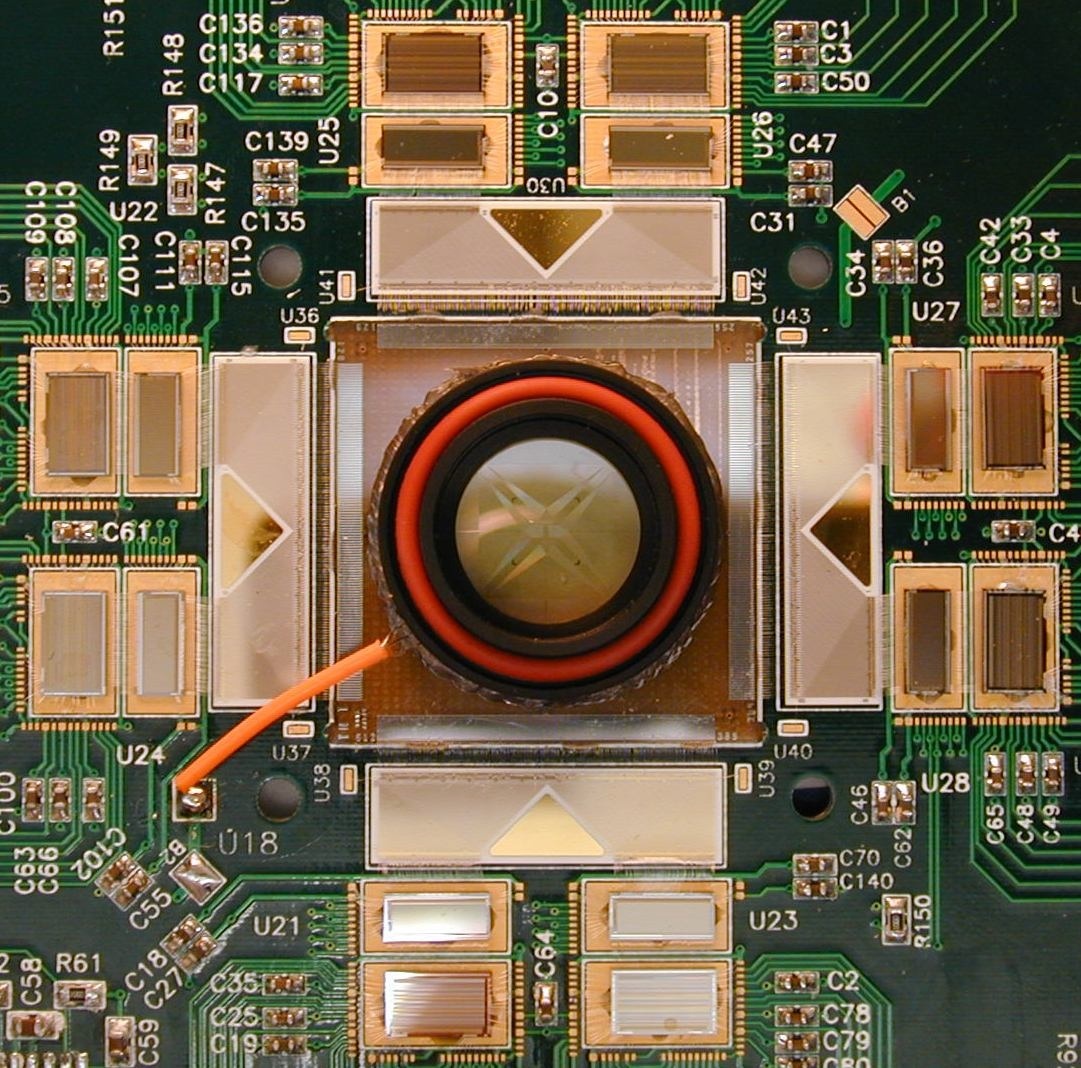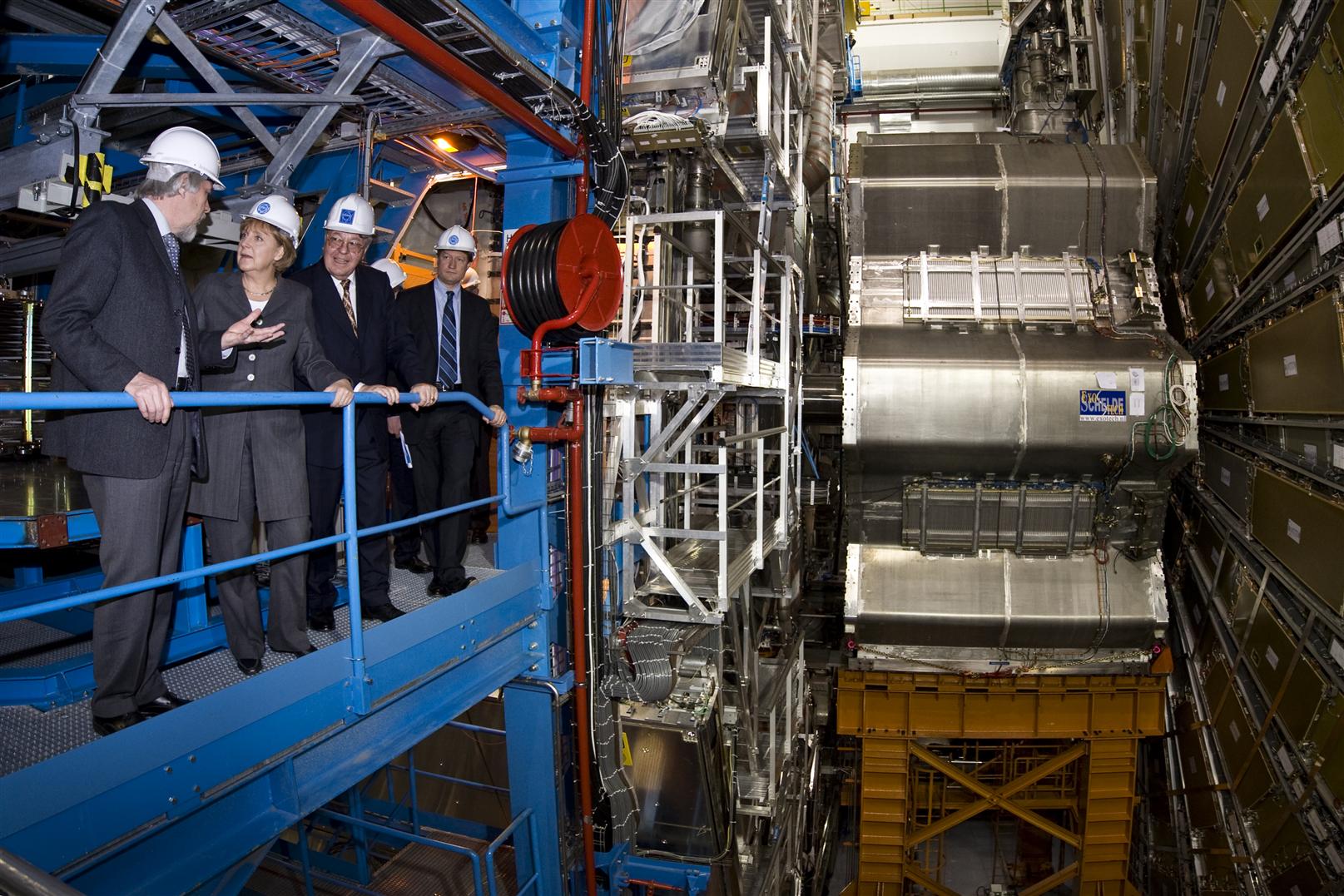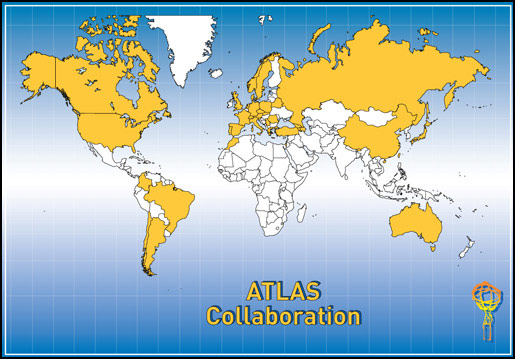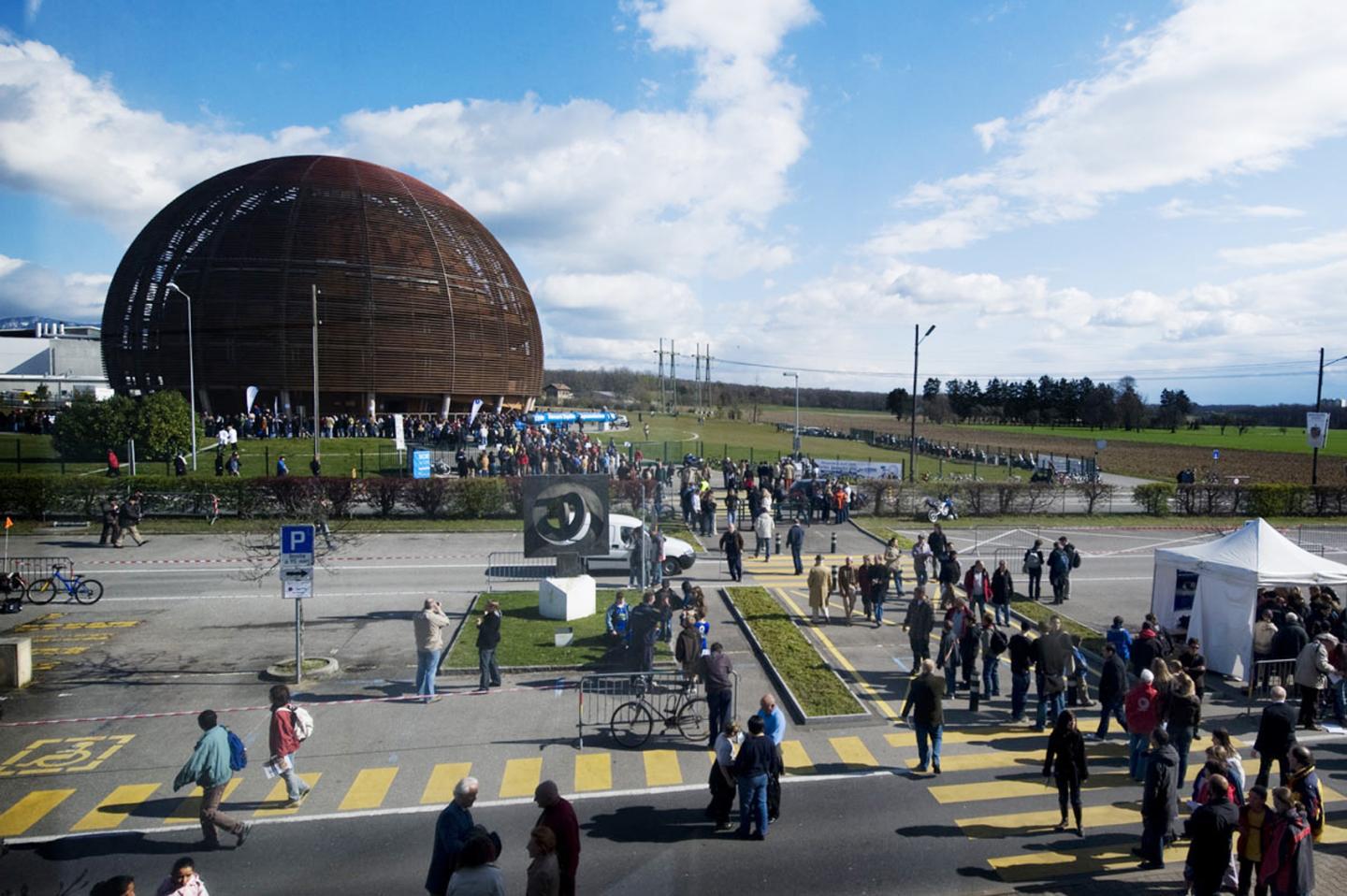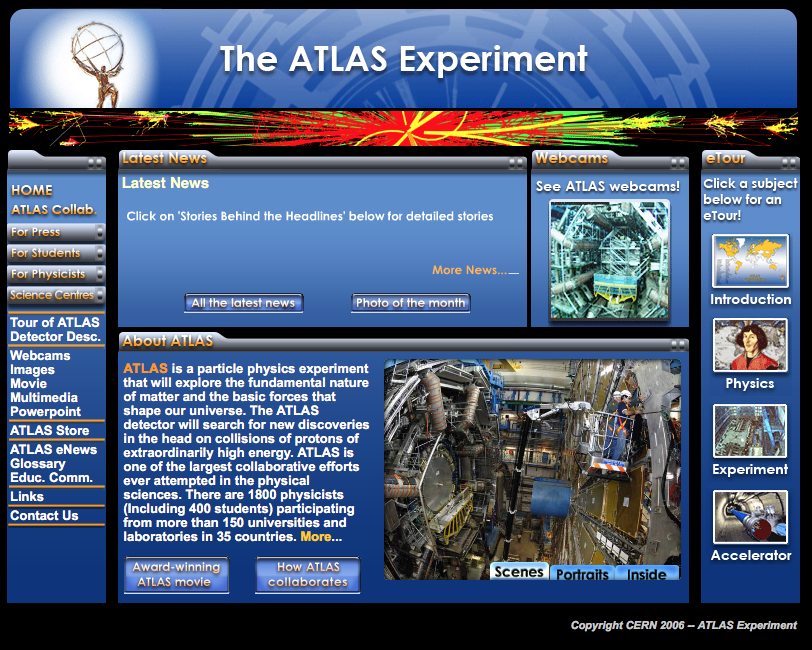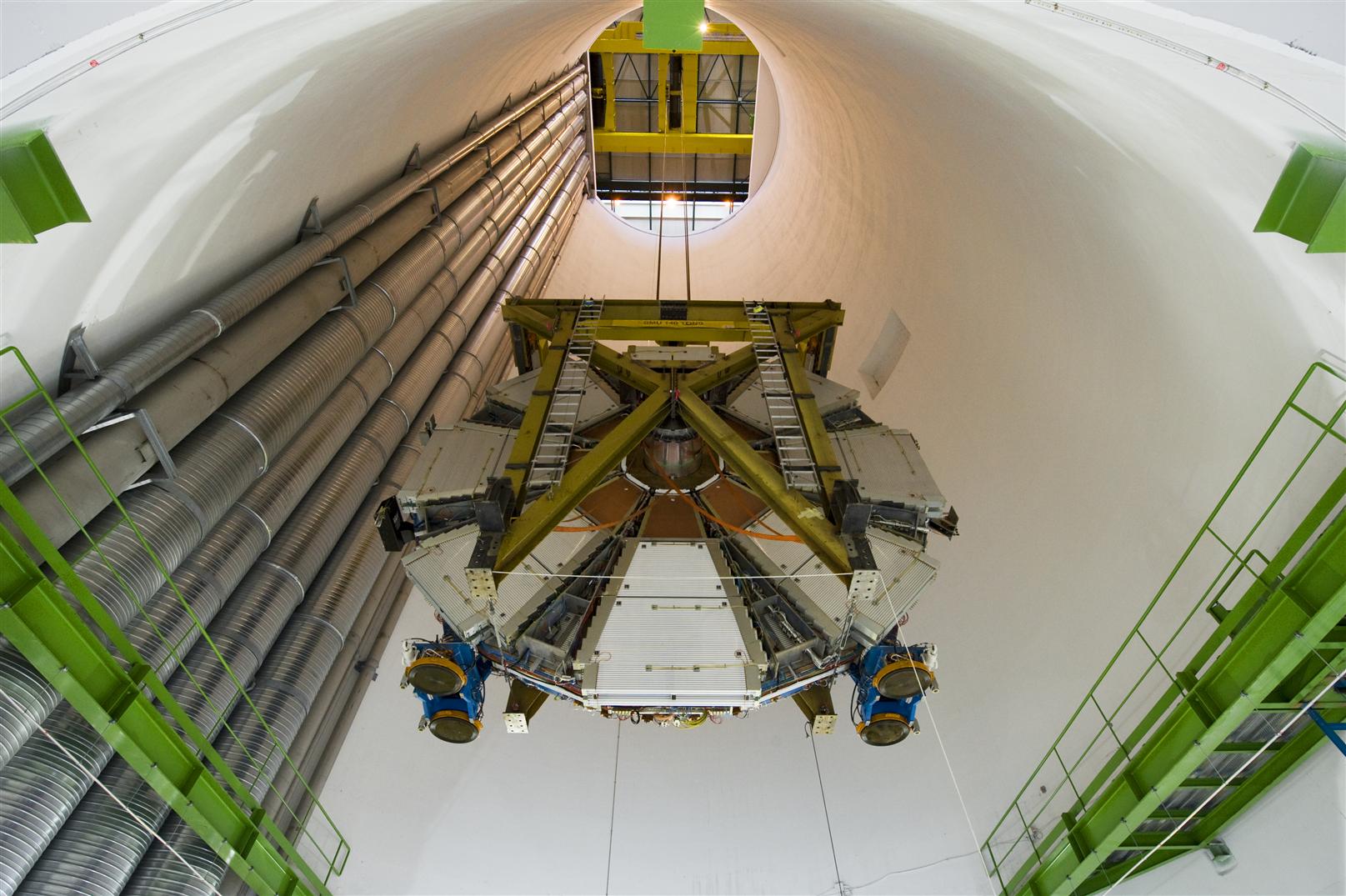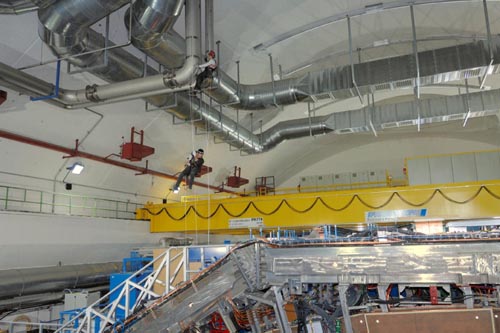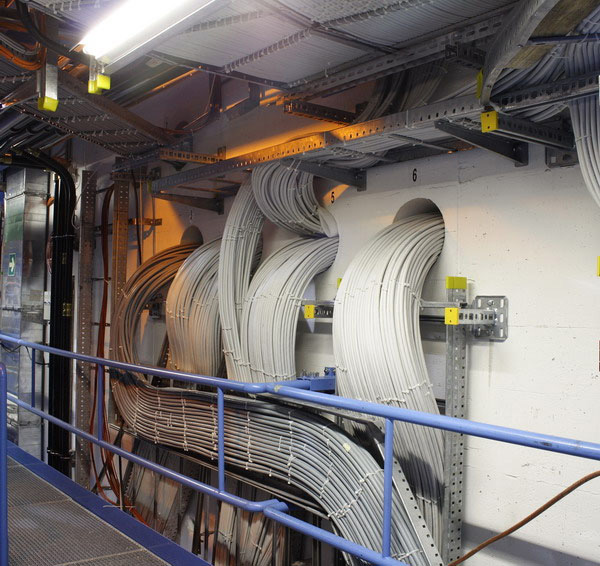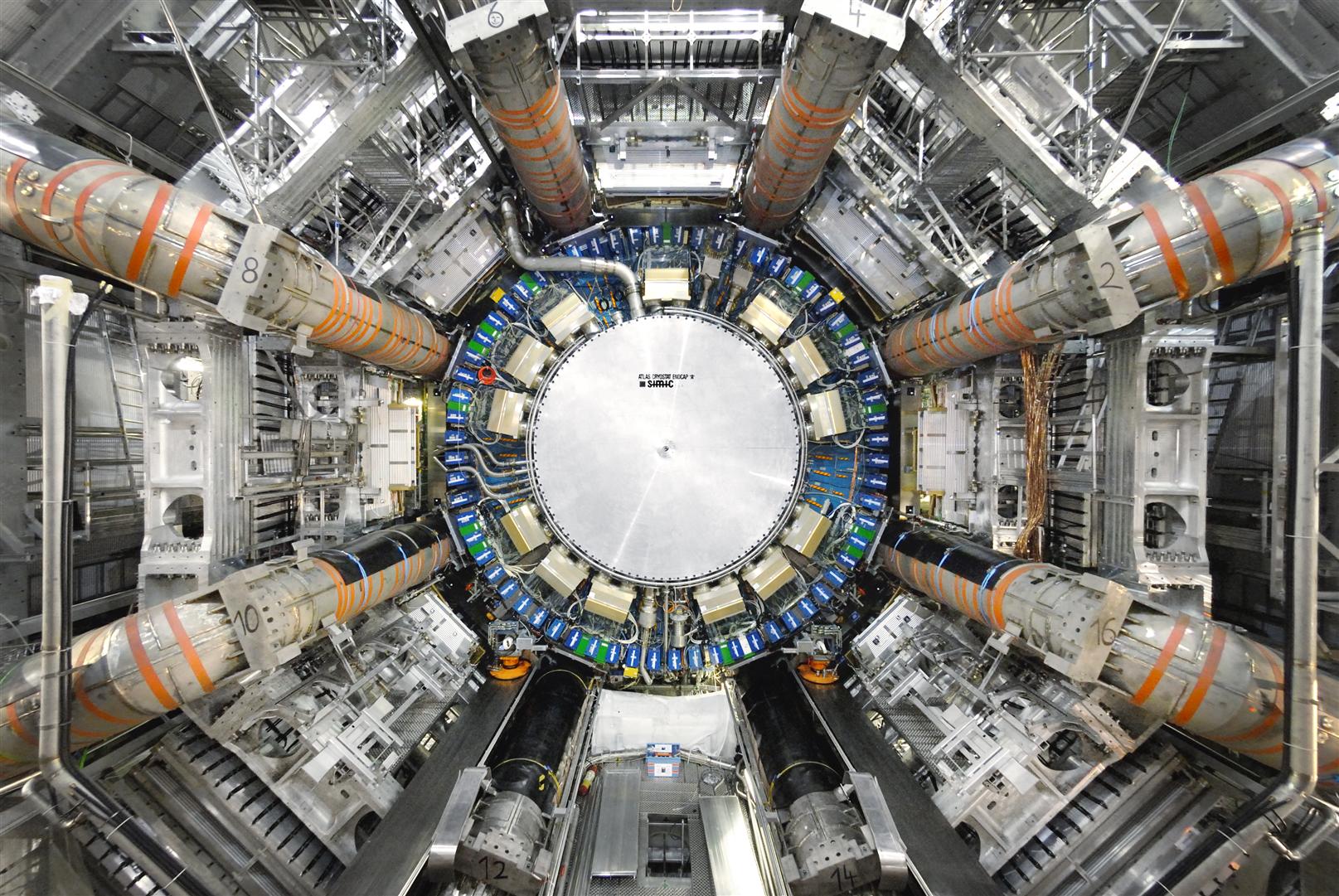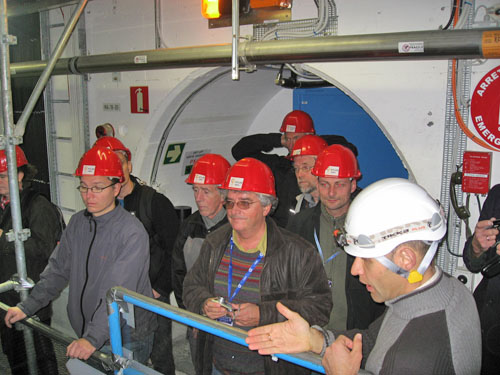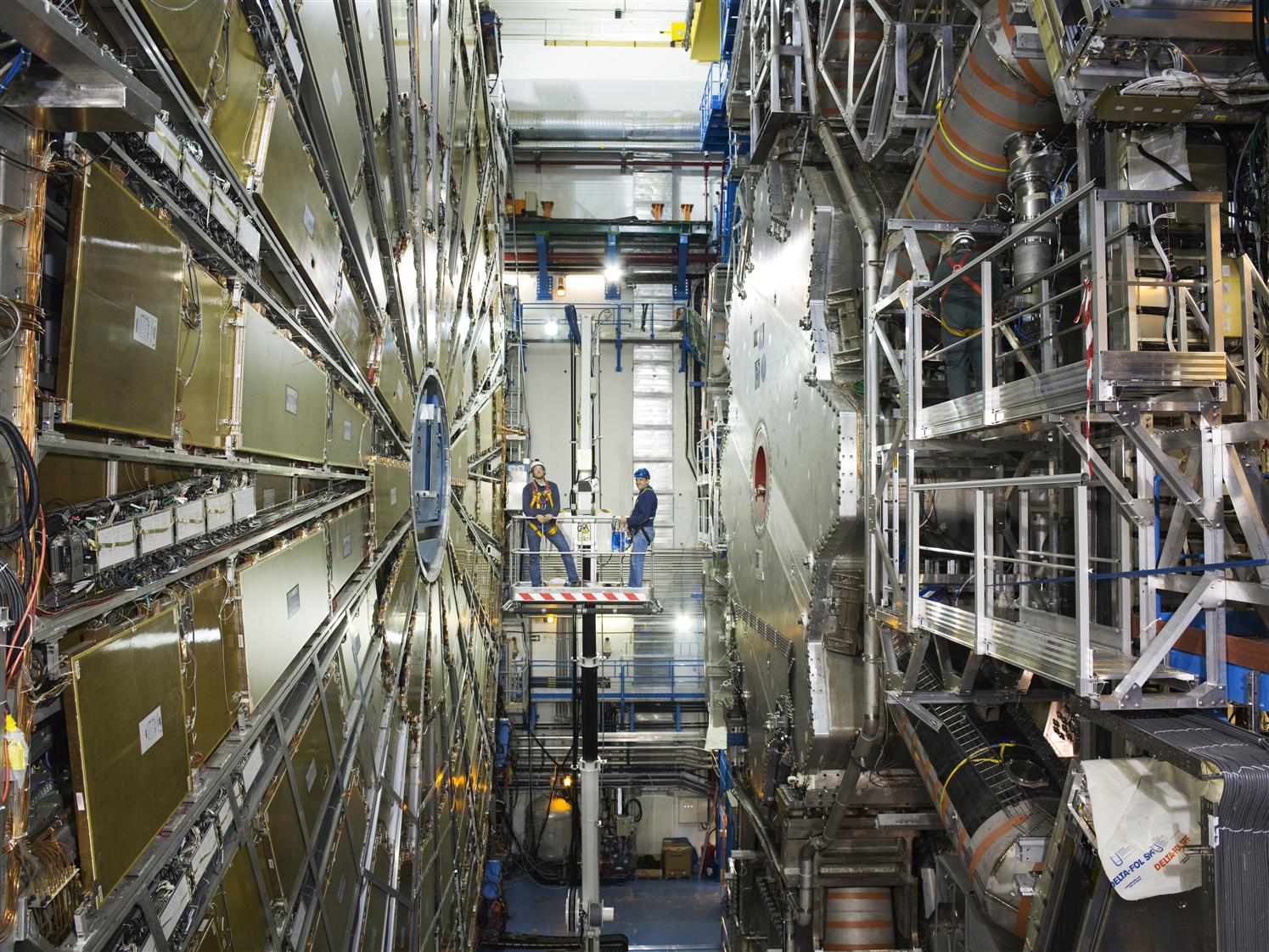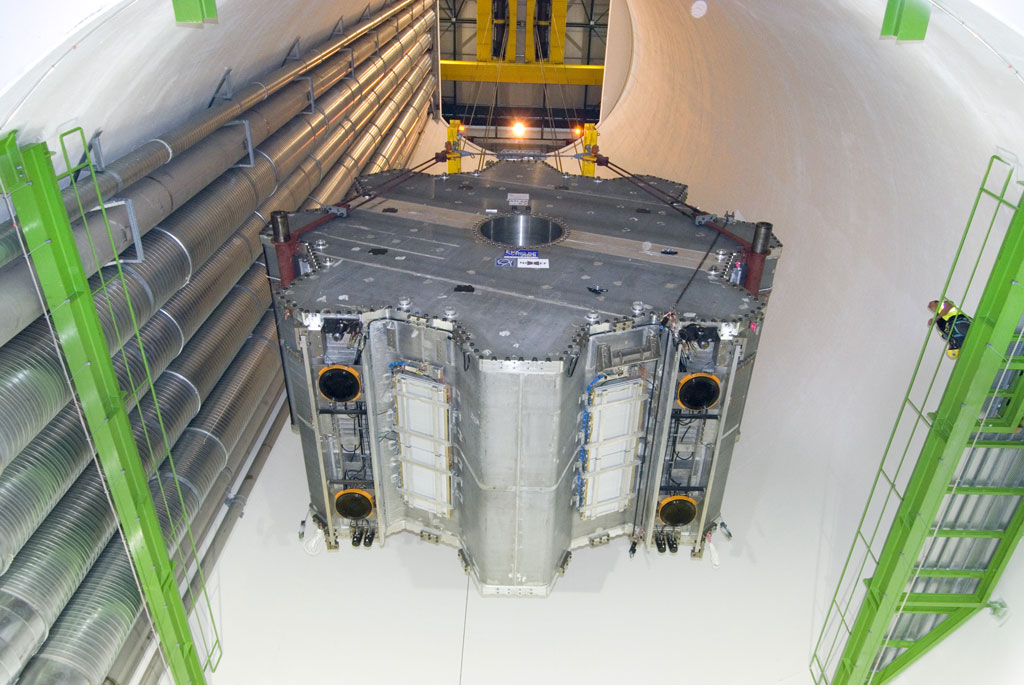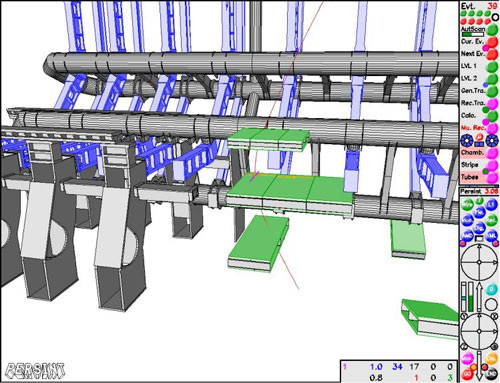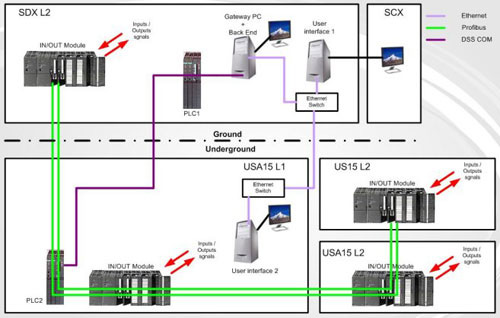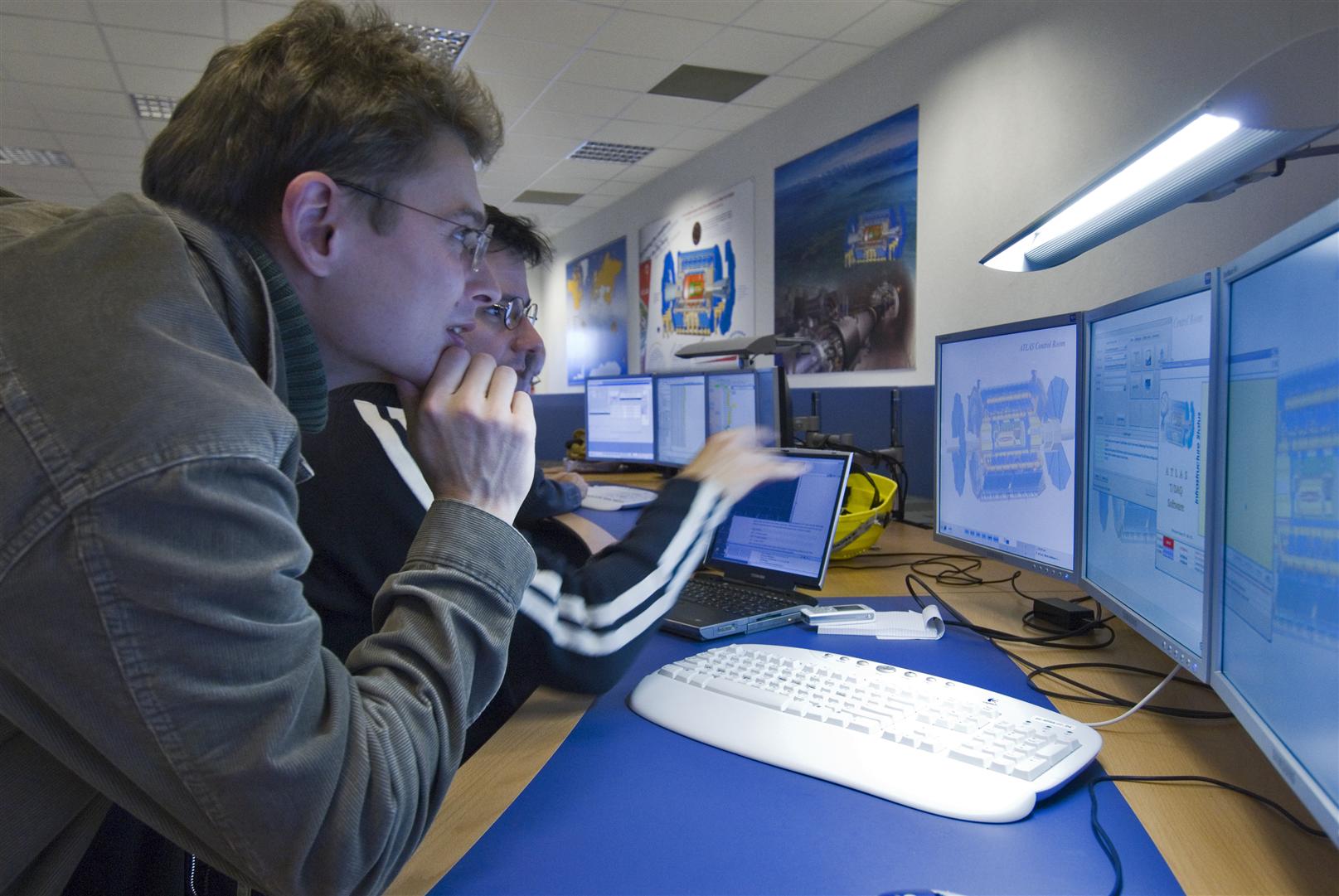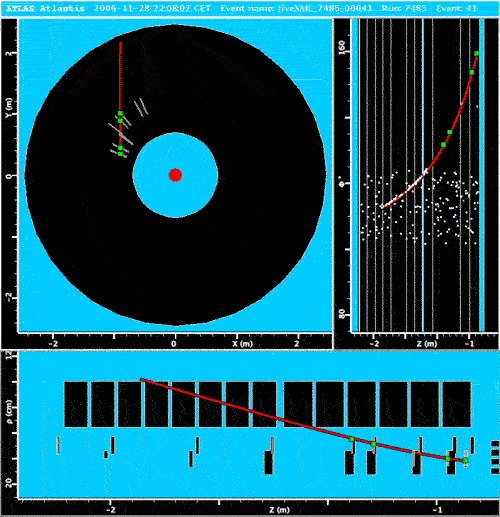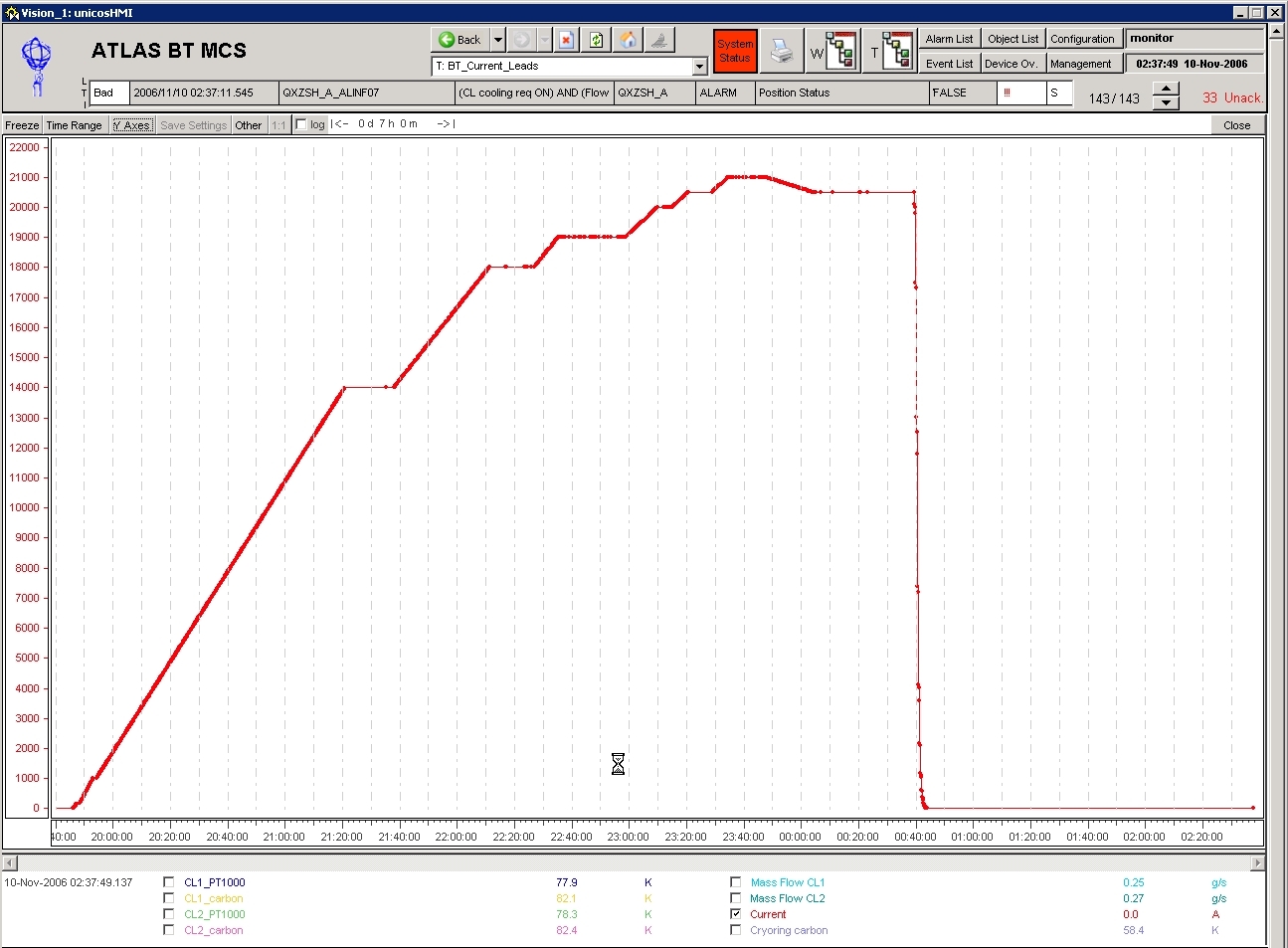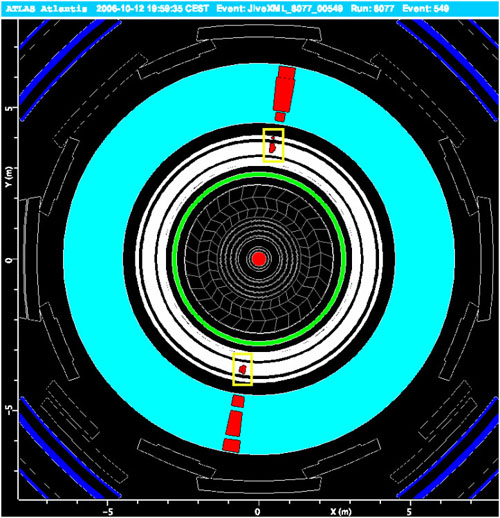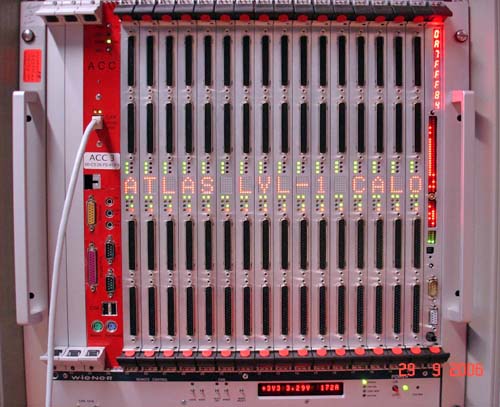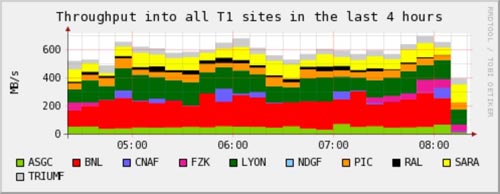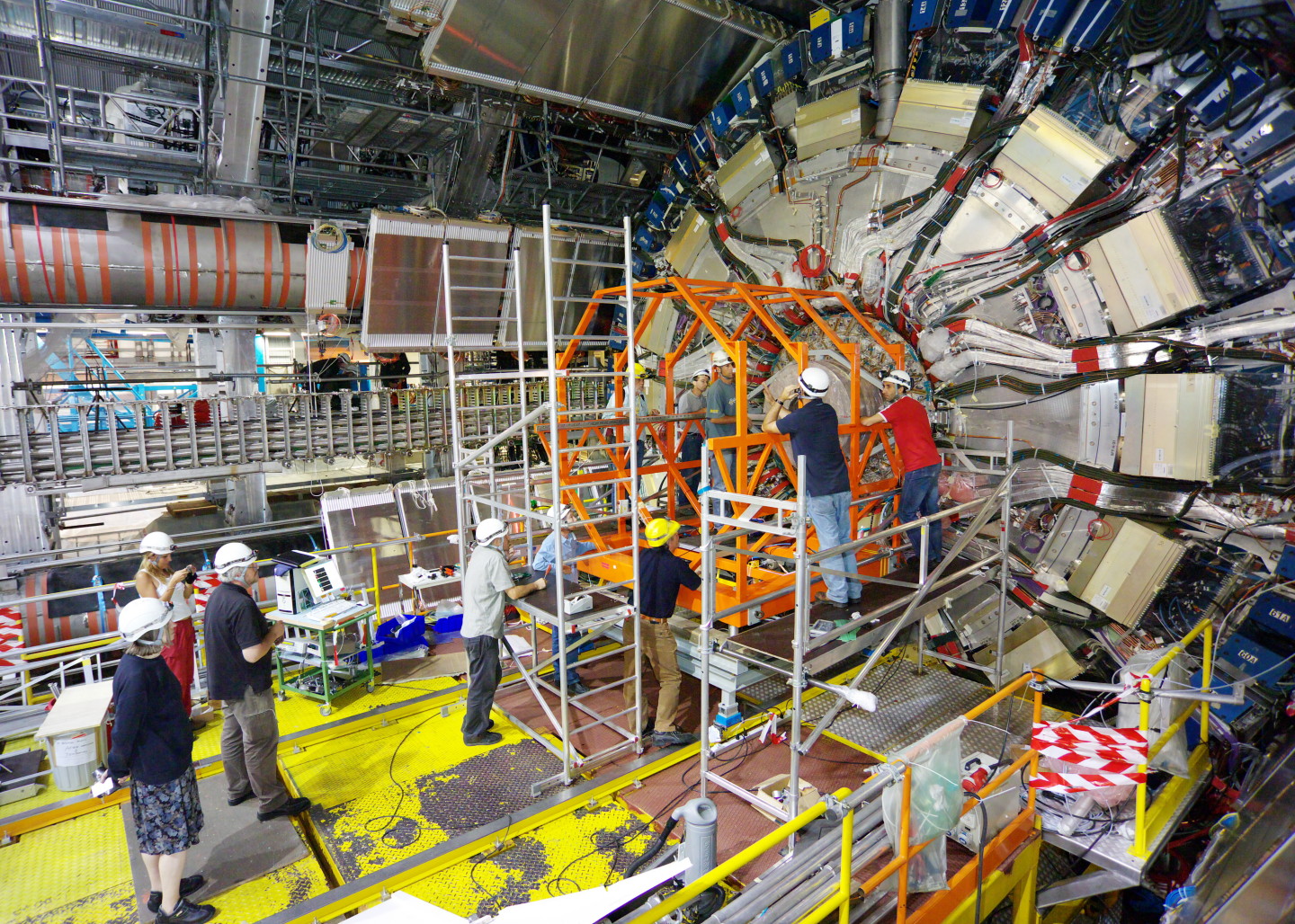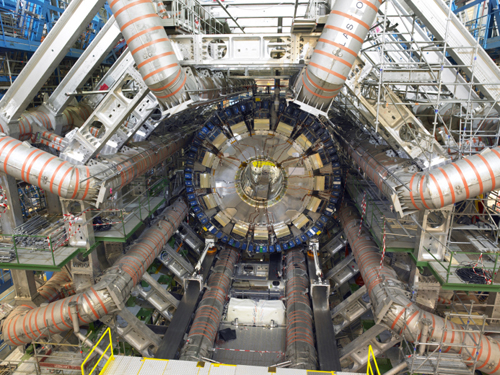News
From Exotic Particles to Possible Solutions for Blindness
The search for exotic particle has led Alan Litke and his ATLAS colleagues to design a system that has allowed the discovery of a new type of cell in the retina of primates, and this technology is helping to find solutions for certain types of blindness.
News |
German Chancellor Merkel visits ATLAS
German Federal Chancellor Angela Merkel made a historic visit to CERN at the end of last month. During her brief 1.5 hours on site, she was taken on a whistle-stop tour of the ATLAS control room and cavern, and given the chance to look down on the largest particle physics experiment in the world from a dizzying height of 100 metres through the access shaft which links the massive underground cavern to the surface.
News |
Argentina, Chile and Colombia Join ATLAS Experiment
The ATLAS collaboration is continuously expanding, and recently its message has reached new shores – South America. Three new countries, Argentina, Chile and Colombia joined the collaboration at the beginning of the year, when Peter Jenni, ATLAS spokesperson, signed collaboration agreements formalising the presence of the Latin American research teams within the ATLAS experiment.
News |
Great Interest as ATLAS and CERN Open to Public
They say there’s no such thing as bad publicity, but how would recent attempts in a Hawaiian court to stop the opening of the LHC because of safety concerns affect the general public’s perception of CERN? The Open Day on 5-6 April gave the ATLAS Collaboration a chance to find out.
News |
Atlas.ch Website Surpasses 1 Million Hits in 2007
The anticipation on site in Switzerland is tangible as the final steps in the construction of the ATLAS detector get underway, ahead of the LHC switch-on later this year. But whilst all the hard work is going on down in the pit, a small team of people are toiling equally hard to bring that sense of excitement and wonder out into the wider world, and throw open a window onto what will be the biggest experiment in the history of human kind.
News |
ATLAS completes world's largest jigsaw puzzle
Celebrations are underway in the ATLAS Experiment, as the final element of the detector was lowered into the cavern on Friday February 29th, 2008. The second “small wheel” is also the final part of the muon subsystem, but the wheels themselves are small in name only. At 9.3 metres in diameter, and weighing in at 100 tons each, moving them from their construction warehouse, at the north-west tip of the CERN site in Geneva, to the underground ATLAS cavern was a challenge which was anything but small.
News |
Intrepid Rappellers Descend Into ATLAS Cavern
It could be a scene from a James Bond movie. But this action shot of two intrepid rappellers (abseilers) was in fact taken in the ATLAS experimental cavern one night in December. François Butin, the ATLAS experimental area manager, tells the story behind the photograph.
News |
Cables: The “blood vessels” of ATLAS
The cables within the ATLAS detector may be thought of as the blood vessels and nervous system of the experiment; they carry power to the detector, they deliver messages to control its functions and they relay the data taken, ready for analysis. Just as blood vessels and nerves criss–cross and connect the organs and tissues of the human body, cables penetrate the whole of the ATLAS volume, reaching each and every one of its elements.
News |
Dress Rehearsal for ATLAS debut
Dave Charlton and his team have a mammoth job on their hands; Charlton has been tasked with coordinating the Full Dress Rehearsal (FDR) of the computing and data analysis processes of the ATLAS experiment, a run–through which he describes as "essential, almost as much as ensuring the detector itself actually works".
News |
Norwegian teachers visit ATLAS
"It's amazing that you have to build something so huge to measure such extremely small things," said Tom Christiansen from Telemark in Norway, after visiting the ATLAS cavern. His sentiment about the size of the ATLAS detector was shared by the thirty–one other physics teachers who, together with Tom, attended the first Norwegian Teacher Programme run at CERN, in November 2007.
News |
Progress on Toroid Magnets
The magnets on either end of the ATLAS detector (called end–cap toroid magnets) dominated November’s work in the experimental cavern. The ATLAS magnet team took a significant step towards finishing work on the ATLAS detector as testing of the magnets began.
News |
The pixels find their way to the heart of ATLAS
Leading up to the lowering of the pixel detector into the ATLAS cavern, final preparations were proceeding quickly.
News |
ESA/NASA astronaut Christer Fuglesang visits the ATLAS cavern
On 14 June, 2007, ESA/NASA astronaut Christer Fuglesang visited the ATLAS cavern. A former CERN fellow working on ATLAS, Christer went on to become the first Swedish astronaut and participated in the STS-116 Space Shuttle mission to the International Space Station last December.
News |
The complex and spectacular lowering into the cavern of the huge end-cap toroid magnet on side A
On 13 June 2007 the first of two giant toroid magnet end-caps was lowered into the ATLAS cavern on the A side. This complex and spectacular operation was completely successful.
News |
Triggering and measuring bent cosmic muon tracks with the muon spectrometer barrel for the first time
Data have recently been collected with the toroidal magnetic field will provide for the first time the measurement of the cosmic ray muons' momenta in the ATLAS experiment and allow studies on trigger optimization, chamber calibration, chamber alignment and magnetic field maps. More than one million events were acquired. They are now being analyzed by enthusiastic members of the collaboration.
News |
The ATLAS Detector safety system
The ATLAS Detector safety system (DSS) has the mandate to put the detector in a safe state in case an abnormal situation arises which could be potentially dangerous for the detector. It covers the CERN alarm severity levels 1 and 2, which address serious risks for the equipment.
News |
Development of the ATLAS control room
The ATLAS control room will become the brain of the detector operations. At the moment six of the final fifteen stations are already in place.
News |
First combined SCT/TRT end-cap cosmic rays seen in building SR1
Following the successful combined SCT/TRT barrel test in the Spring 2006, a similar combined SCT/TRT endcap test is currently being performed in the SR1 building on the ATLAS experimental site at CERN. One quadrant of the SCT and two sectors of the TRT have been cabled up and are used in this test. The data taking and combined testing is expected to last until December 11th.
News |
The pixels system: last but not late!
After almost 15 years of R&D and prototyping, the ATLAS pixel detector is finally almost ready for installation in ATLAS, and its first rendez-vous with colliding beams!
News |
Barrel toroid magnet fully charged to nominal field, and it works!
After a few weeks of testing up to intermediate currents, finally, on Thursday evening November 9, the current in the Barrel Toroid was pushed up to its nominal value of 20500 A and even 500 A beyond this value to prove that we have some margin. It went surprisingly well.
News |
First physics pulses in the barrel electromagnetic calorimeter with cosmic rays
The electromagnetic barrel calorimeter was installed in its final position in October 2005. Since then, the calorimeter is being equipped with front-end electronics. Starting in April 2006, electronics calibration runs are taken a few times per week to debug the electronics and to study the performance in the pit (stability, noise). Today, 10 out of the 32 Front End crates are being read out, amounting to about 35000 channels.
News |
Progress on the level-1 calorimeter trigger
The level-1 calorimeter trigger (L1Calo) has recently passed a number of major hurdles. The various electronic modules that make up the trigger are either in full production or are about to be, and preparations in the ATLAS pit are well advanced.
News |
ATLAS copies its first PetaByte out of CERN
On 6th August ATLAS reached a major milestone for its Distributed Data Management project - copying its first PetaByte (1015 Bytes) of data out from CERN to computing centers around the world. This achievement is part of the so-called 'Tier-0 exercise' running since 19th June, where simulated fake data is used to exercise the expected data flow within the CERN computing centre and out over the Grid to the Tier-1 computing centers as would happen during the real data taking.
News |
Inner detector barrel installed in cryostat
Wednesday 23rd August was a memorable day for the Inner Detector community as they witnessed the transport and installation of the central part of the inner detector (ID-barrel) into the ATLAS detector.
News |
First operation of the central solenoid
A new phase for the ATLAS collaboration started with the first operation of a completed sub-system: the central solenoid. It was cooled down from the 17th to 23th May 2006, and the first kA was put into it the same evening as it was cold and superconductive. That makes our solenoid the very first cold and superconducting magnet to be operated in the LHC underground areas.
News |

